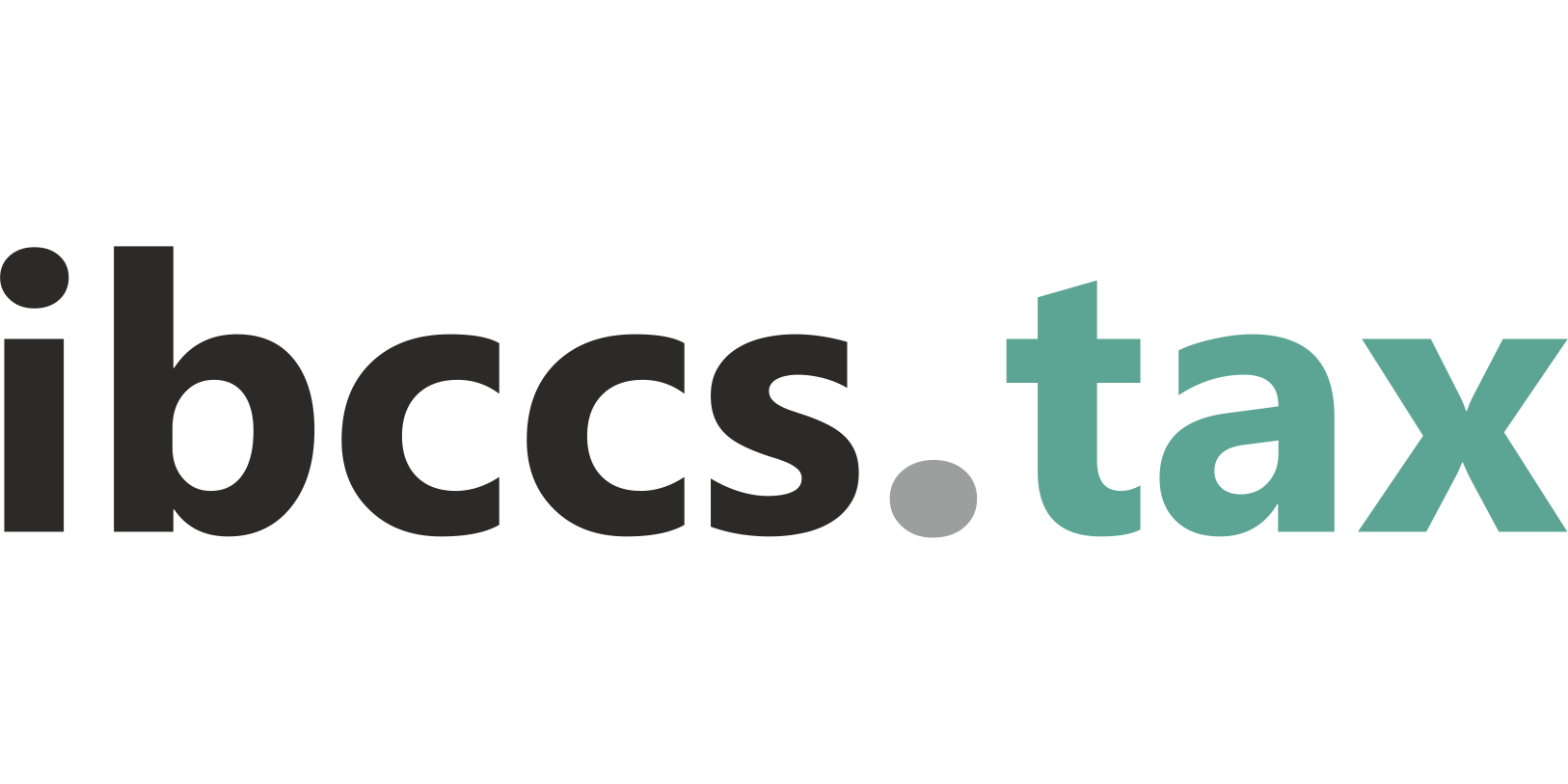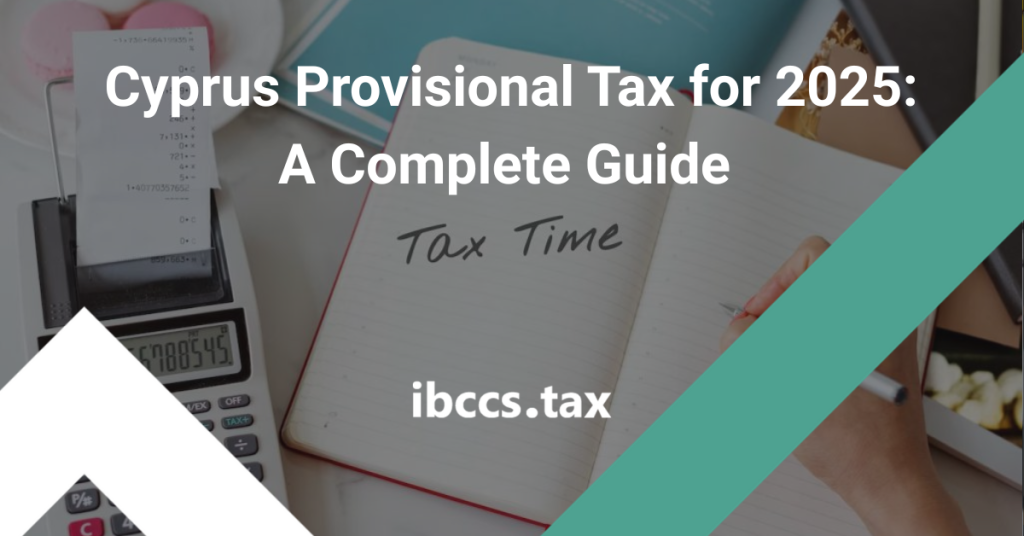For companies and self-employed professionals in Cyprus, managing tax responsibilities is crucial. In 2025, a key obligation is the payment of provisional tax.
Provisional tax involves specific deadlines, calculation rules, and potential penalties. In this blog post, we’ll guide you through everything you need to know – from estimating your tax liability to submitting payments and avoiding costly mistakes. Whether you’re a company director, finance manager, or independent consultant, this information will help you stay ahead of your obligations.
Understanding Provisional Tax in Cyprus
Provisional tax – also referred to as temporary tax – is a system that requires taxpayers to prepay part of their expected annual tax liability. This mechanism aims to improve tax planning, spread out payments across the year, and reduce the financial burden at the year’s end.
In Cyprus, provisional tax applies to legal entities and individuals whose income is not exclusively derived from salaries or wages. In other words, if you are running a business in Cyprus, offering services as a freelancer, or generating income through rentals or investments, you are likely required to submit a provisional tax estimate.
However, if you anticipate zero taxable income for the year, you are not obliged to submit a provisional tax return – though it is advisable to monitor your situation closely in case this changes during the tax year.
Key Deadlines for Provisional Tax in 2025
For the tax year 2025, provisional tax must be paid in two equal instalments. The first instalment is due by 31st July 2025, and the second by 31st December 2025.
Payments must be submitted via the Cyprus Tax Portal. It is essential to ensure the relevant tax liability has been created in the system before attempting to make a payment.
These dates are critical, and missing them can result in penalties and interest. Although the legislation allows for a short grace period, it is strongly advised not to rely on this buffer to avoid unnecessary financial charges.
Provisional Tax: What Happens If You Miss a Deadline?
Failure to pay a provisional tax instalment by its due date results in a 5% fixed monetary penalty on the unpaid amount. In addition to this, interest will accrue at the official rate – currently set at 5.5% per annum—calculated on the basis of completed months of delay.
The tax authorities apply these charges only if payment is not made by the end of the following month after the instalment deadline. This means that the first instalment must be paid by 31st August 2025, and the second by 31st January 2026, to avoid penalties and interest.
However, relying on the grace period is not a sustainable tax strategy, especially for businesses that aim to maintain good standing with the Tax Department.

Are You Looking For Tax Advice?
Reach out to us by clicking on the button here.
Revising Your Provisional Tax Estimate
One of the most practical features of the provisional tax system is the ability to revise your estimate of taxable income. Businesses often experience fluctuations in revenue or expenses throughout the year, making it difficult to predict profits with complete accuracy.
The Cyprus tax system allows taxpayers to adjust their estimated income at any time before 31st December 2025. If your earnings increase, you should revise your estimate upward and pay the corresponding tax difference. Keep in mind that the additional amount will attract interest from the original due date of the affected instalment.
On the other hand, if your financial performance worsens and the initial estimate turns out to be too high, you can revise it downward. However, the revised figure must be no less than the amount already paid in the first instalment, which sets a floor for the adjustment.
Regular monitoring and timely revision can help you avoid unnecessary overpayments or penalties for underestimating your taxable income.
The Risk of Underestimation: 10% Additional Tax
While the flexibility to revise estimates is helpful, underestimating your annual income carries a serious consequence. If your final declared income – reported in Form TD4 – turns out to be more than 25% higher than your estimated income, you will be subject to a 10% additional tax on the underpaid amount.
This rule is designed to encourage taxpayers to provide realistic estimates and discourage attempts to delay tax payments by artificially lowering projections. Therefore, it is crucial to make a conservative, well-informed estimate and revisit it later if your financial picture changes significantly.
Provisional Tax: Common Mistakes to Avoid
Many taxpayers fall into avoidable traps that can result in penalties, interest, or compliance issues. Among the most common errors are:
- Failing to revise provisional tax estimates when profits change during the year
- Assuming no tax is due without properly evaluating current income trends
- Forgetting to pay the second instalment in December
- Missing the final 2024 tax payment deadline due to poor calendar management
- Attempting to pay without confirming the liability on the Tax Portal
Maintaining a proactive approach, supported by regular accounting reviews, can help prevent these issues and keep your business in good standing.
Need Expert Help With Cyprus Tax in 2025?
Tax planning and compliance can be time-consuming, particularly when running a business. If you’re unsure about how to calculate your 2025 provisional tax, need help adjusting an estimate, or want to make sure your 2024 final tax is settled correctly, professional assistance can make all the difference.
You don’t have to manage it alone. Our team of tax professionals is here to support you every step of the way—from calculation to portal submission and beyond.
📧 Contact us: [email protected]
📞 Call us: +357 222 58 777
The 2025 tax year introduces new obligations and familiar challenges for businesses and professionals across Cyprus. By understanding the provisional tax structure, adhering to deadlines, and proactively revising estimates where needed, you can avoid unnecessary penalties and manage your tax affairs with confidence.
Don’t wait until deadlines are looming. Take control of your tax obligations today, and ensure a smoother, more predictable financial year ahead.

Are You Looking For Tax Advice?
Reach out to us by clicking on the button here.


